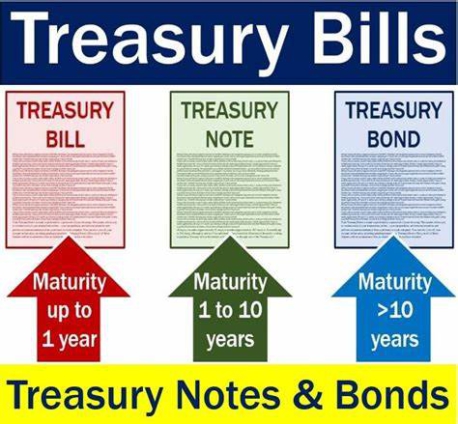For the first time since the third week in November, sale of Treasury bills to investors have been undersubscribed in the weekly auctioning of the short-term securities.
But this time around, the under-subscription is very significant.
Right after the December 7th elections, the weekly Treasury bills sale was highly oversubscribed by about 21%.
But that has been short-lived as there has been a huge under-subscription
by investors.
Whilst government was looking for GH¢1.79 billion, it rather got GH¢971.7 million for the 91-day, 182-day and 364-day Treasury bills.
For the 3 months T-Bill, government accepted all the bids worth GH¢759.8 million, whilst it accepted GH¢154.9 and GH¢56.9 million for the six months and one year Treasury bills respectively.
Interest rate for the 91-day and 182-day T-Bills however still hover around 14.08% on the average, whilst that of the one year bill is going for 16.9%.
Analysts believe the successful sale of the 3-year fresh bond and the 20-year Treasury bond during the past week could be attributed to the lower participation of investors in the weekly T-Bills auctioning.
“There were two other offers in the same week which raised substantial sizes. I believe these dual offers provided significant competition for the T-bills. The 3-year offer, which raised GH¢1.66 billion provided the main competition at 19.25% and attracted most of the interbank liquidity for the week”, Courage Martey, Senior Economic Analyst with Databank Research told Joy Business.
Secondly, banks and retail investors may be looking to hold more cash balances ahead of the Christmas holidays. This could also have restrained investment demands and weighed on subscription at the T-bills auctions.
Meanwhile, there is an anticipated slight fall in interest rates in the coming weeks because of decline in inflation.
Interest rate ease on short-end of market
Interest rate trends on the money market reflected mixed developments as
yields on the short to medium term instruments eased, but broadly tightened at the longer end, the Bank of Ghana said in its Monetary Policy Report.
On a year-on-year basis, the 91-day Treasury bill rate declined to about
14.1% in October 2020 from 14.7% a year ago.
Similarly, the interest rate on the 182-day instrument declined to 14.1%
from 15.1%.
With the exception of the 6-year bond, yields on the 7-year, 10-year, 15-
year, and 20-year bonds all increased.
Latest Stories
-
Livestream: Newsfile discusses Ghana’s 2025 AFCON fiasco, Dumsor scare
7 mins -
Police invite Wontumi FM/TV presenter over publication of false news
9 mins -
Putin says Russia will use new missile again in ‘combat conditions’
3 hours -
We have rescued kidnapped Emirates Airlines Airport Services Manager – Police
3 hours -
Bawumia-branded campaign vehicle burns, occupants escape unscathed
3 hours -
Bawumia, thousands observe ‘Jummah’ prayers as new Walewale Central Mosque is commissioned
4 hours -
Peasant farmers hail Bawumia as Walewale Watermelon Factory is commissioned
4 hours -
Joy FM Prayer Summit for Peace ends in electrifying worship and prayer
11 hours -
The Conscience of Leadership: A call to President Akufo-Addo on Ghana’s environmental devastation
12 hours -
Ghanaian youth unaware of their right to hold politicians accountable – Youth Bridge Foundation
13 hours -
Judge delays Trump sentencing for a third time
13 hours -
2024 WAFCON: Ghana drawn against defending champions South Africa in Group C
13 hours -
Photos from DW-JoyNews street debate on ‘galamsey’
14 hours -
Mimmy Yeboah: Blending heritage with global sophistication, confidence redefined through couture
14 hours -
100 Most Influential People Awards 2024: Brain Hill International School’s Director Mary Anane Awuku honoured
15 hours

